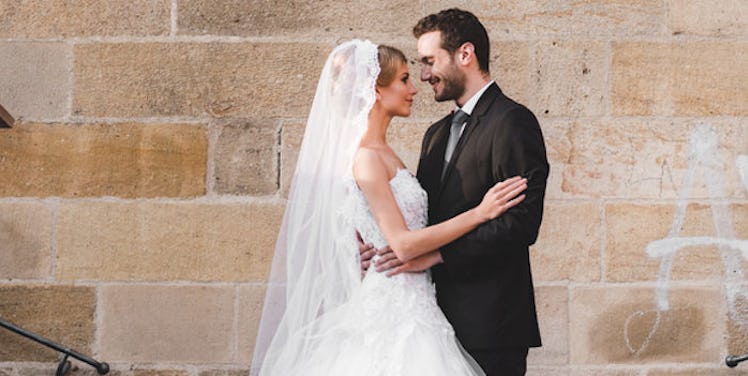
The Meaning Of Life: Why Adults Need To Start Asking As Many Questions As Kids
Picture yourself laying in a grassy field on a warm summer day. The grass, still damp from the morning dew, sparkles a vibrant green as it reflects the sun’s shining rays.
As you lay there glancing at the sky above, you notice a wave of cirrus clouds gently swirling towards a sea of cumulus clouds. Its fresh white hue is filtered only by the sepia shade of your sunglasses.
The clouds move slowly and subtly, lulling you into a hypnotic stupor of euphoria and curiosity. “Am I watching the clouds move, or are the clouds watching me and the rest of the planet move?” you think to yourself.
A cool summer breeze flows by and gently brushes the side of your face as you take in a deep breath and smell the crisp scent of fresh cut grass.
You hear the quiet rustle of leaves dancing in the wind and you lay there in awe, wondering: What does it all mean?
To me, examining life is like looking through a kaleidoscope: You look through the lens and you notice a multicolored galaxy of vivid colors, eye-catching shapes and curious arrangements.
You become engulfed by the amalgamation of stimuli in front of you; in each scenario there are a thousand different things you could look at, pay attention to or get carried away with.
You become consumed as you try to make sense of the organized chaos presented before your eyes.
Just when you think you understand the full picture, having recognized all the nuances and tiny little details, you turn to the next frame. CLICK. The picture is now entirely different.
What you previously knew about the kaleidoscope is no longer the in the frame. While the scene may have changed, the entity by which it’s presented is still the same.
If you turn the kaleidoscope enough times, you’ll eventually get back to the first scene where it all began. But after you drink in everything else the kaleidoscope has to show you, coming back full circle to that first picture brings with it an evident change in perspective.
At the risk of sounding like a supercilious, self-important D-bag, I am going to tell you what I believe to be the meaning of life:
In order to understand the meaning of life, you would first need to acquire an understanding of life itself. In order to fully understand life itself, you would have to analyze life as experienced by everyone living.
Only when you dissect a concept from every possible angle will you be able to see the bigger picture and completely grasp the concept inside and out.
Like in the case of an intricate painting, you can sit and stare at the picture for hours, perplexed by its details.
But your thought process is molded by your own previous knowledge and experiences; thus, you may be limited. Someone else could walk by and instantly point out something you never before considered.
Theoretically, you could talk to 100 different people who tell you 100 different things they see in the painting.
Identifying these unique perspectives of each individual will tell you more about the painting itself and the feelings it invokes.
Approaching the question of life this way, however, is idealistic because it would be impossible to understand life from every single person’s unique perspective. So how do you get to the prize at the bottom of the cereal box when it seems like it’s infinitely far away?
The meaning of life is not about diving deeper down the rabbit hole; it’s about examining the value your surroundings have to offer, in addition to the value of your own past experiences.
The people you meet, sights you see, sounds you hear and feelings you feel are all relevant and valuable in some sense.
Just as relevant as those experiences are to you, they are equally relevant to the people you share them with. The experiences you have are what add colorful meaning to the outline of your life.
Each experience is like a door that could open you to a deeper understanding of yourself. You can choose to walk through that door and enter into the disorganized flurry of your subconscious, or you can close it shut and remain blissfully ignorant.
The point is to try and understand the nuances that make the people, situations and scenarios you encounter unique or novel.
The value in these experiences usually lies within the facets that make them distinct. From that point of understanding, you will be poised to experience life in full vivid color rather than in black and white.
Living a progressive, meaningful life is not just about leaving your comfort zone; it’s more about giving your voyage meaning by appreciating what makes it unique.
It’s about defining meaning in the uncharted and observing the reflection of what those new circumstances tell you about yourself.
It’s about meeting new people, reading new books, trying new foods, visiting new places and overall opening your mind to the world around you.
As long as there are novelties you haven’t experienced, there will be opportunity for you to expand the scope of your mental stratosphere.
On my first day of Entrepreneurship 101 at USC, my teacher told the class, "The meaning of life is ‘questions.’" It’s simple: The more questions you ask, the more answers you’ll have. The more answers you have, the more you understand.
In my experience, that seems as close as you can get to answering the age-old, vexing question of our existence.
Maintaining this sense of curiosity will keep you perpetually engaged in finding answers that fill in the blanks of your life’s meaning.
Curiosity may have killed the cat, but ignorance would have killed its soul.
Photo Courtesy: We Heart It